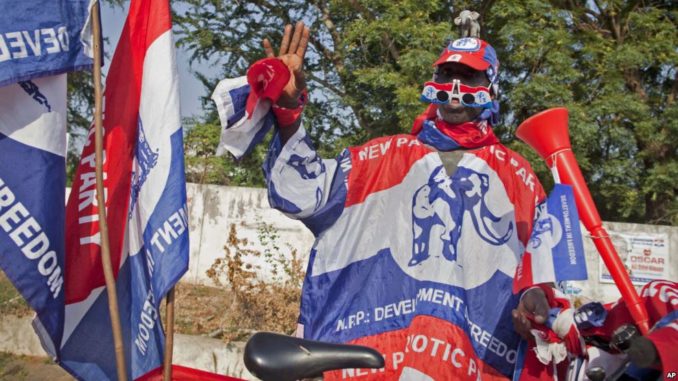
The presidential candidate of Ghana’s opposition Progressive People’s Party (PPP) says a court decision Friday that orders the Electoral Commission to put him on the December 7 ballot should strengthen the electoral body’s ability to equitably apply the country’s electoral laws ahead of the polls.
Dr. Papa Kwesi Nduom was one of more than 10 presidential candidates disqualified by the commission for failing to meet stipulations in the documents they filed to contest the December polls.
But the PPP challenged the disqualification, and a court reversed the commission and ruled that Nduom could join the race if he corrected errors in his original application.
A ‘little bit more faith’
In an interview shortly after the court’s ruling, Nduom told VOA his party planned to meet commission officials next week to begin revising the documents it must file. He also said the ruling could encourage citizens to have a “little bit more faith” in the Ghanaian system and institutions.
“I have said right from the beginning that what had happened to me was an attack on our democracy, on our freedoms, and on our still infant democracy, and that it was also an attempt to belittle the institutional structures that we have in Ghana,” Nduom said. “ … The judge essentially told the Electoral Commission that what had been given to me by the law, they had tried to take away.”
“This is a victory not for me or for the Progressive People’s Party, but for the people of Ghana,” he added. “And it asserts our legal rights, a right given by the constitution of the republic and the right given by the political parties law. And for me that is what is important and good.
“Yes, I am happy that I get an opportunity to get back on the ballot. I am very happy about that because Ghana needs a party other than the NDC [National Democratic Congress] and the NPP [New Patriotic Party], to balance things out and to ensure that the people of Ghana have a choice to make, and a good choice at that.”
Map of Ghana, Africa
Nduom said his Progressive People’s Party has been leading a crusade to ensure the Electoral Commission is impartial and independent in carrying out its constitutional mandate to organize and administer peaceful, transparent and credible presidential, legislative and local elections.
Critics of the commission say its reputation was damaged by Friday’s court ruling. Others, however, said the ruling strengthens the commission’s ability to be fair and impartial.
“I believe in the latter,” Nduom said. “This must lead to the strengthening of the Electoral Commission, and I am hoping that the Electoral Commission itself believes as we do that all of its laws must be applied strongly across the board without fear or favor. When that is done, I think that Ghana would be well. So I am hoping that this gives them a bit of a push, but in the right direction, a positive one.”
“For those who are arguing in all kinds of strange ways,” Nduom said, “well, that is up to them, but the law is the law, and the law is important. And if you want to be a strong country, a country that develops just like the people of the United States have developed, it must be based on law and order, and all institutions must comply with the law. Once we do that, I think then we get the fundamental foundation for other things to happen. So I am happy for that and I hope we are not going to be enemies of the EC.”
Also on the ballot
Nduom now joins incumbent President John Dramani Mahama from the ruling NDC, Nana Addo Dankwa Akufo-Addo of the New Patriotic Party, Ivor Kobina Greenstreet of the Convention People’s Party and Jacob Osei Yeboah, an independent candidate, on the presidential candidates’ list.
Former first lady Nana Konadu Agyeman Rawlings, the presidential hopeful of the opposition National Democratic Party, has filed a separate court petition challenging her disqualification. She told VOA the Electoral Commission failed to uphold the law, which requires notification to a political party of any possible errors in its nomination documents.
VOA